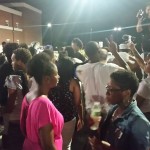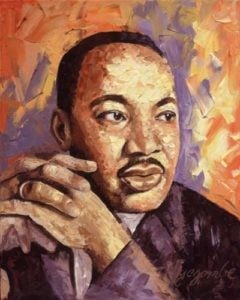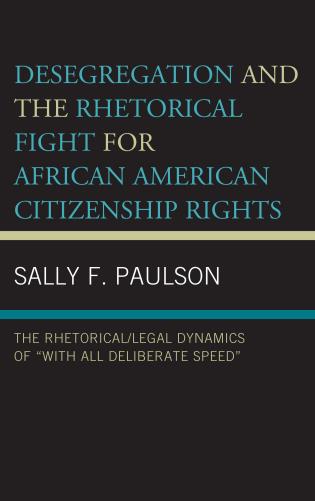One thing I will remember most about the past few years is the gnawing feeling of dread every time I log on to my computer or hit the power button on my television set, perpetually weary of the seemingly unending images of Black bodily injury and Black death. After the senseless killings of Trayvon Martin in Florida and Michael Brown in Missouri, a grassroots movement provided a space to put rage into action: Black Lives Matter. I am grateful for the Black Lives Matter movement for many reasons, but one in particular is the much-needed shot of adrenalin it has provided to the church in general. Many churches have resurrected their dormant social justice ministries to march, protest police brutality and support Black Lives Matter, and the movement has helped to put race on the national agenda for the upcoming 2016 presidential election. This is a good thing. You can tell how much of an impact it has simply by paying attention to the game of “hot potato” some presidential candidates are playing with it.
As happy as I am to see the Black Lives Movement gaining momentum, particularly in the church, I find myself wrestling with a relevant question: can we do the work of Christ in the midst of a state of unyielding rage? I got the answer to that question when I saw “3 ½ Bullets, Ten Minutes,” a documentary whose subject matter provides an intimate look at the killing of seventeen-year-old Jordan Davis on November 23, 2012. Davis was shot and killed after an argument with forty-five-year old Michael Dunn over the volume of music coming from the car he was riding in with his friends. (You can view the trailer here.) Needless to say, the film was disturbing on many levels. Hearing Dunn’s re-telling of the event was sickening. His testimony was so offensive; I don’t know how his parents were able to sit peaceably through it in court when his recorded conversations from jail were played. He made statements like this:
“I know you’re innocent baby, Uhh. I know you did something that you wish you hadn’t had to do, but you did what you had to do and ummm,” said Rouer (Dunn’s then fiancée).
“You know I was thinking about that today, I was like I’m the f*** victim here, I was the one who’s victimized. I mean I don’t know how else to cut it, they attacked me, I’m the victim. I’m the victor, but I was the victim too,” said Dunn.
One that shook me to the core was this observation Dunn made from jail:
“The jail is full of blacks and they all act like thugs. This may sound a bit radical but if more people would arm themselves and kill these (expletive) idiots, when they’re threatening you, eventually they may take the hint and change their behavior.”
Dunn continued this warped trajectory by talking about the status of black youth, proclaiming that black boys have absent fathers, live in the ‘hood and are poor. It was as though he were reading from a script. But there is the thing. There is a false narrative about black youth that is deeply embedded in the psyche of white fear. The fact that Dunn felt comfortable discussing this at all speaks volumes, especially when you consider the fact that Jordan Davis’ father, Ron Davis, was present in the courtroom every single day of the trial. Dunn even claimed that by killing Jordan Davis, he probably “saved Jordan from killing someone else.”
After the film ended and I sat in my seat numb with trauma, anger, and incredulity at Dunn’s lack of affect, much less his complete and utter lack of empathy for Jordan Davis, I was not prepared at all for what happened once the lights came up. Jordan Davis’ mother, Lucia McBath, was sitting in the theatre with us watching the film. It is one thing to feel stabs of pain when you see the all too frequent images of the grieving parents of Black and Brown children killed at the hands of the Zimmermans, Wilsons, and Dunns of the world. It is another thing entirely to be in their presence. I was completely floored by Lucia Bath’s demeanor, energy, and transparency. She began to talk about forgiveness, and before I could get my back up, once again annoyed with the persistent need to inquire of the parents of murdered children and the spouses of murdered wives and husbands whether or not they have forgiven the person that killed their loved one. I believe the query itself betrays a certain lack of respect for Black grief; for example, I cannot recall any reporter asking a parent of one of the children killed at Sandy Hook Elementary School if they forgave Adam Lanza.
Yet, Ms. Bath talked about her faith and forgiveness in a way that was life-giving and affirming. She spoke about it in a way that blasted through my rage fatigue. If we are honest about it, forgiving others is probably the most difficult thing we are asked to do. For Black folks, it seems we are often asked to forgive offenses before an apology is even offered. For a lot of us, forgiveness is hard because of an understanding that forgiving someone is excusing his or her behavior, and “we don’t want anyone running game on us.” But forgiveness is not about the other person. Forgiveness is not necessarily about the offender; forgiveness is more about the offended. Ms. Bath stated her need to forgive Michael Dunn for killing her son not for his sake, but rather so that she could bear her mantle and do the work she needed to do on Jordan’s behalf. (Ms. Bath is very active with Moms Demand Action.) Ms. Bath talked about how important it is that she be present for the work. She shared with us that it was important for her to not do this work of justice on behalf of her murdered son distracted. You could have heard a pin drop in that auditorium. People even stopped filming her and posting her image to Facebook long enough to give Ms. Bath the courtesy of their full attention, undistracted…people stopped chronicling the moment to be present in the moment.
Ms. Bath shared with us that forgiveness did that for her. But how does it look for the rest of us? Forgiveness in the time of Black Lives Matter is no easy task. Even those of us who preach and teach the Gospel of Jesus Christ find it challenging. While I was in grad school I had the pleasure of hearing the incomparable Maya Angelou give a lecture. She took questions from the audience, and someone identified herself as a Christian, to which Mother Angelou responded, “already?” With a single word, Maya Angelou reminded us that being a Christian is something to work on daily, to measure, to have a trajectory of upward altitude. It’s not just one and done, it is daily persistent work.
Every single day, I must choose Jesus and make strides toward being more like him. And it is not a task for the faint of heart. It is something we must do in the midst of being enraged by the persistent images of Black death, when levels of fear of black bodies has shown un with a wrath probably not seen since the fear white slaveholders in the deep American south had about uprisings. I absolutely believe that the descendants of kidnapped and enslaved Africans (and others) carry within the strands of their DNA the trauma of that experience. Likewise, the descendants of slaveholders carry fear trauma: fear of black bodies overtaking them and retaliating against them. This is an actual quote from a slaveholder in Charleston in 1706: “Is it possible that any of my slaves could go to heaven, and must I see them there?”[1] The fear of Black bodies is real, and there is legislation that gives armed fearful people the right to use deadly force if they PERCEIVE their lives to be in danger. Too much Black potential lies in the graves of Black men, women and children who died because somebody feared them. The church needs a working theology of fear, and ongoing conversations about what forgiveness looks like in the life of the 21st century Black Christian.
Ms. Bath reminded me that forgiveness is a process that does not excuse the behavior of the person who offended you or hurt you. Forgiveness is like taking the fear out of the event, like removing the stinger from a bumblebee. You may still hear the buzzing of the bee, or be reminded of the bee’s presence, but it has lost its potential to keep you immobilized in fear, waiting to be stung. As difficult as it is to forgive, hearing Ms. Bath reminded me of the need to examine our rage. Watching her pain in the film hurt me to my heart. But she was not staying there, she relied on her church and her faith to help her both examine it and deal with it. She was pressing through it.
Both Ms. Bath and the Black Lives Matter movement remind us that there is work still to be done, and that we can channel our rage into action that helps to change mindsets and misconceptions about Black youth, Black adults, Blackness. Legislation has not helped this country embrace the full personhood of Black humanity, and this is something we continue to contend with. Hearing Ms. Bath reminded me that this laying aside of offense is something that even Jesus wrestled with. When Jesus was being nailed to the cross, he cried out: “Father, forgive them for they do not know what they are doing” (Luke 23:34). Perhaps we should consider that Jesus called on God to forgive them because he was not yet in a space to forgive the men causing him such pain in that particular moment.
[1] Robinson, David. Denmark Vesey: The Buried Story of America’s Largest Slave Rebellion and the Man Who Led It, (New York: Vintage Books, 1999). 19
Kimberly Peeler-Ringer is a contributor for R3













